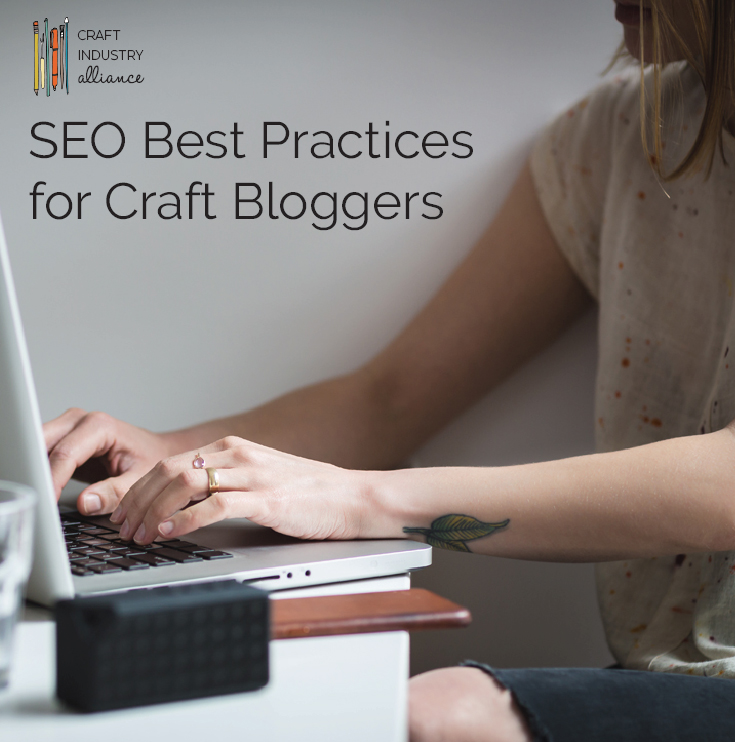
Getting to the top rankings, or placing high in Google’s Search Engine Results Page (SERPs, in GoogleSpeak), requires creating a relationship with Google, and like any relationship, getting Google to work with you and for you takes time. But there are ways to make Google “warm up” to you faster.
Good SEO begins with trust
The first real guiding principle in SEO is trust, and getting Google to trust you requires three key ingredients: your site’s indexed age, its authority profile, and its underlying content. Indexed age is not the date you started the website, but the date Google first noticed the site, which is actually based on the other two key ingredients: authority profile and content.
The authority profile of a website includes the quality of the sites linking to your domain, how diverse these links are (meaning they shouldn’t all be coming from the same domain) and the frequency and freshness of those links. Or in simpler terms, who is writing about you and your craft business and where?
The third key ingredient is the content on your site or blog itself. Gone are the days when just putting up a website landed you on SERPs. Now your content must be rewritten or added to regularly, it must be engaging to the reader and it must add value to what’s already on the Internet.
Quality content is king
Michelle Sternbauer, EVP and Account Director of THAT Agency, writes via e-mail, “Content, now more than ever, is still king; however, the thought behind creating it must shift. Content must be created unselfishly now. Instead of thinking about creating the content that will generate an immediate sale, marketers need to think about creating content that is useful to customer. In return, you will build yourself as a thought leader, and your customers will keep coming back to you. Creating exceptional content should be based on well-researched customer personas, answering specific questions, and optimizing for appropriate keywords.”
Blogging platforms like WordPress ask a writer to choose a focus keyword(s) and then to identify other keywords that are also found in your blog post . Effective SEO includes using the focus keyword in the title of the post, in the first sentence, and then repeated throughout the text. The number of times to repeat is determined by the word count of the blog post itself, but around .8% of the word count is a positive SEO ratio.
Size does matter
While the minimum length for a blog post should be 300 words, Google considers this thin content, and it won’t help the search engine trust your blog/website. Adams says that most of the top spots (the SERPs) feature quality, keyword-focused content over 2,000 words. Longer articles tend to be better researched, contain links to authorities and data, and serve as sources to journalists and other bloggers who then link back to your site/blog as the source—all of which helps create and advance your authority profile.
Writing things that others want to mention and link to is a big part of content marketing, and as Adams says, “Great content, when crafted the right way, can send you skyrocketing up Google’s SERPs, but only if you stay consistent.” Consistency in blogging terms does not mean that you have to write new content daily, but you do have to create high quality content regularly (weekly, biweekly, or monthly). So think about the things you think your customers would like to know, and as Sternbauer implies, answer their unasked question, or show why you are the authority in your particular area of craft.
And because we live in a world where we surf from a variety of devices in a variety of sizes (2016 marked the year more people Googled from a mobile device than from a desktop or laptop), make sure your blogs and photos are mobile friendly. Consider using a responsive WordPress or other blog template, which will change formatting depending on the size of the screen on which it’s viewed. Google itself also has an open-source Accelerated Mobile Project where you can start building a website that will be “fast, beautiful and high performing across devices and distribution platforms.”
Regardless of your prior SEO experience, the ever-evolving Google algorithms make one thing clear: it’s no longer an option not to consider SEO in your marketing plan. Even a few small changes, when done consistently as you create your content, can result in a substantial impact down the road.

Jill L. Ferguson
contributor
Jill is the author of ten books, an artist, editor, entrepreneur and consultant. She is the founder of Women's Wellness Weekends (www.womenswellnessweekends.


I think you nailed the most important pieces of writing a quality blog post on the head. Very simple and to-the-point! Through my experience, writing valuable content is definitely the #1 most important thing among anything else. If you have a 2,000+ word article that’s trash, it doesn’t matter how much optimizing you do – it’s still going to be trash.